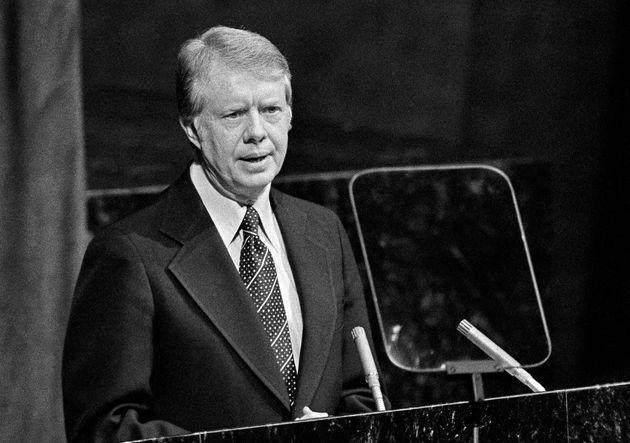The potential for recycling nuclear waste to generate energy has long been recognized, but concerns about proliferation of atomic weapons have hindered its development in the United States. However, with growing commercial interest and bipartisan support, there are signs of progress in this area.
The recent passage of a short-term spending bill in the U.S. House marks a significant step toward commercializing technology for recycling nuclear waste. This bill allocates $10 million for a cost-sharing program aimed at assisting private nuclear startups with the federal licensing process, specifically making waste-recycling companies eligible for the funding. While this initial investment is relatively modest compared to the overall cost of establishing a recycling industry, it signals a shift in attitudes toward nuclear waste management.
The inclusion of funding for nuclear waste recycling in a bipartisan spending bill reflects changing perspectives on atomic energy. Supporters of nuclear energy from both sides of the political spectrum, such as Rep. Chuck Fleischmann (R-Tenn.) and Rep. Alexandria Ocasio-Cortez (D-N.Y.), have expressed support for this initiative. This bipartisan consensus suggests a growing recognition of the potential benefits of recycling nuclear waste, both in terms of energy production and environmental stewardship.
Overall, the inclusion of funding for nuclear waste recycling in the spending bill is seen as a significant development in the nuclear policy landscape. It represents a step forward in addressing the challenges associated with nuclear waste management and demonstrates a willingness to explore innovative solutions to harness the energy potential of spent nuclear fuel.
The history of nuclear waste management in the United States reflects a complex interplay of political, economic, and security considerations. Reprocessing spent nuclear waste, which involves extracting materials that can be used in bombs, was initially pursued by industrial conglomerates like Allied Corp., with the construction of a reprocessing facility in Barnwell, South Carolina, in the early 1970s.
However, President Jimmy Carter’s decision to ban nuclear waste recycling in 1977 was influenced by concerns about nuclear proliferation. This move was intended to demonstrate moral leadership and discourage other countries from developing nuclear weapons capabilities. Carter’s decision came amidst global tensions following India’s development of an atomic bomb in violation of the Treaty on the Non-Proliferation of Nuclear Weapons.
Although President Ronald Reagan later reversed the ban on nuclear reprocessing, the failure of Allied Corp.’s facility in Barnwell dissuaded other companies from pursuing similar projects. Instead, the focus shifted to the disposal of nuclear waste, culminating in the Nuclear Waste Policy Act of 1982, which shifted responsibility for spent nuclear fuel from utilities to the federal government.
The decision to prioritize nuclear waste disposal over reprocessing was influenced by factors such as economic considerations and the availability of alternative sources of fuel. However, this approach has led to challenges in managing the growing stockpile of nuclear waste and has prompted renewed interest in exploring recycling technologies as a means of addressing these challenges.
The history of nuclear policy in the United States has been marked by shifting priorities and political decisions that have shaped the trajectory of the nuclear industry. In the 1990s, the Clinton administration’s agreement with Russia to purchase nuclear fuel from disassembled atomic weapons led to the decline of the domestic enrichment industry, as cheap imports flooded the market.
During the early 2000s, there was a renewed interest in nuclear energy, driven by efforts to reduce emissions and dependence on imported fossil fuels. The Bush administration funded research programs on nuclear recycling, including the Advanced Fuel Cycle Initiative and the Global Nuclear Energy Partnership, aimed at promoting safety standards and limiting access to uranium-enrichment technologies.
However, under the Obama administration, funding for waste-recycling research was removed from the Energy Department’s budget, and the Yucca Mountain storage project was canceled, leading to uncertainty regarding the disposal of nuclear waste.
The recent funding allocated in the House bill for nuclear waste recycling represents a shift in policy, indicating growing bipartisan support for exploring recycling technologies. This funding could pressure regulatory agencies to restart the process of developing guidelines for commercial recycling.
Additionally, the geopolitical landscape, particularly with Russia’s dominance in the nuclear energy sector, has influenced US energy policy. The Biden administration’s investment in producing high-assay low-enriched uranium (HALEU) domestically reflects efforts to reduce dependence on foreign sources and mitigate supply chain vulnerabilities.
However, there are concerns about the purity standards of HALEU made from nuclear waste, leading to restrictions on funding for such projects. Nevertheless, the Energy Department is already engaged in reprocessing its own waste to generate HALEU, highlighting the potential for recycling technologies to play a role in the future of nuclear energy.
